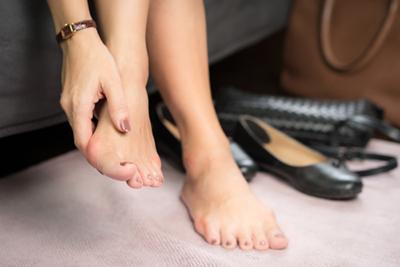My Blog
Treating Your Bunion Symptoms
- posted: Sep. 13, 2023
Bunions are a common problem. In fact, over half of the women in the United States have developed a bunion at some point, according to the American Academy of Orthopedic Read More
What Are Bunions and How Can They Be Treated?
- posted: Dec. 01, 2022
If you have a hard, bony lump on the side of your big toe, it’s probably a bunion. Bunions are caused by a genetic bone deformity which makes your big Read More
Are You Dealing With Bunion Pain?
- posted: Aug. 01, 2022
Find out how to get your bunion pain under control and when to see a podiatrist. A bunion is a painful foot deformity that warrants turning to a podiatrist to learn Read More
Treating Your Bunions
- posted: Apr. 01, 2022
Have you been diagnosed with a bunion? A bunion is a common foot deformity that if left untreated can cause significant pain, swelling, structural changes and even trouble walking. Of Read More
Treating Your Bunions
- posted: Jul. 14, 2020
If you’re dealing with a bunion then you know that this pain is no joke. If you’re dealing with a throbbing, aching pain at the base of your big toe Read More
